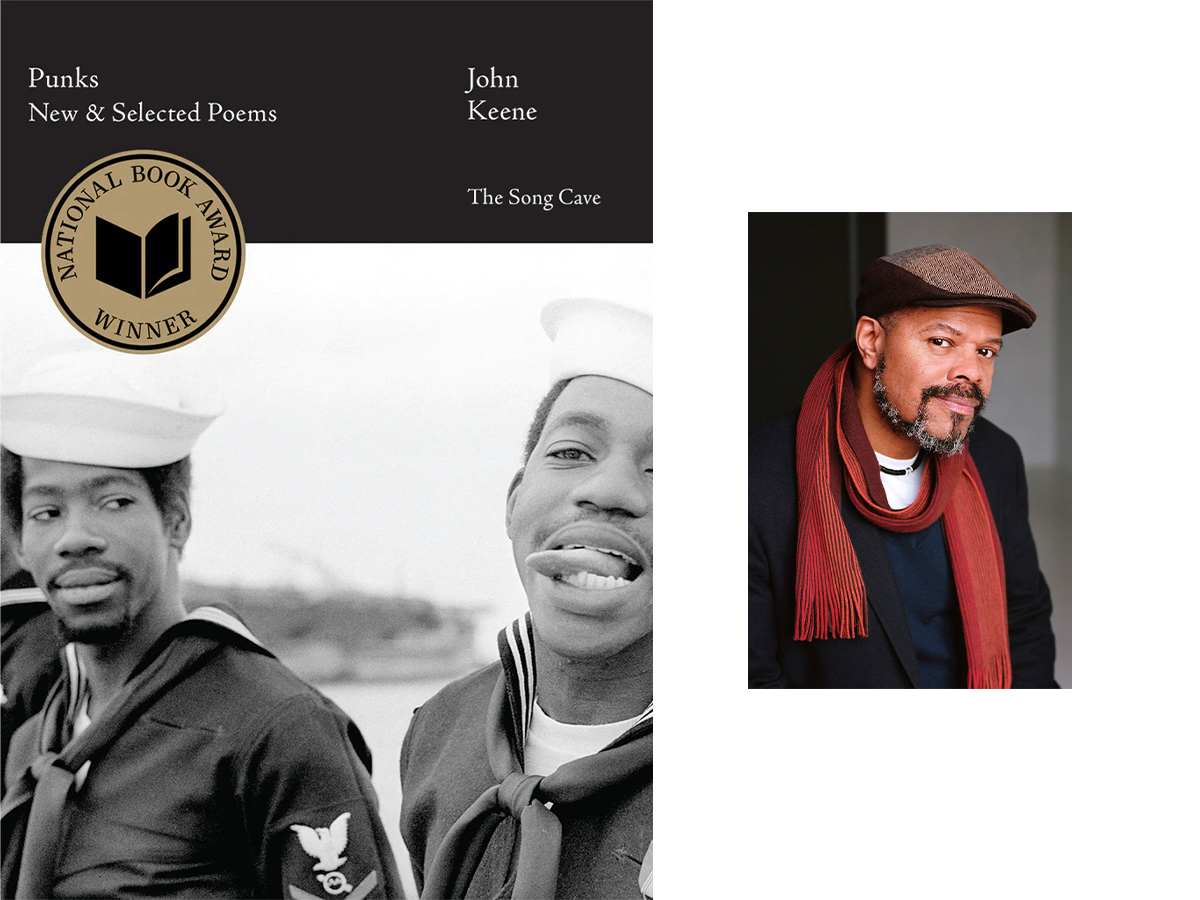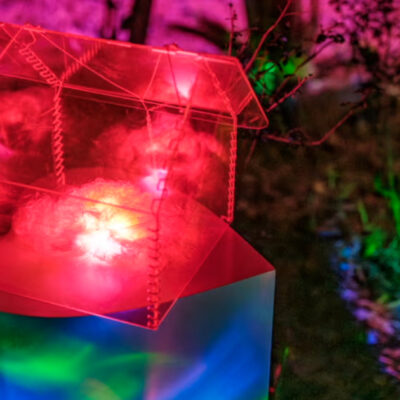The poems in John Keene’s latest collection, Punks: New & Selected Poems, span three decades, saturated with the desire, loss, and reflections of a Black gay man who lived through the early days of the AIDS epidemic and continues to navigate our contemporary traumas and tragedies.
Keene received the 2022 National Book Award for Poetry and the 2022 Lambda Literary Award for Gay Poetry for Punks, among other honors. A Cave Canem and MacArthur fellow, as well as a respected literary translator, he is perhaps best known for his fiction, including Counternarratives, his 2015 collection of short stories, where his acute appreciation for linguistics mixes with a honed ability to inhabit history—qualities that are on full display in Punks as well.
Divided into seven sections, Punks covers a breadth of eras and emotive ranges, from the poems in “Playland”—many of which were originally published in a 2016 chapbook by the same name—which evoke G&Ts in gay bars with throbbing beats, celebrating the embodied joy that we experience in life, to sections that commemorate and mourn the victims of the Pulse nightclub shooting, the Black men and women who continue to die at the hands of U.S. police, and the people whose lives were lost early in the HIV/AIDS epidemic, to name a few.
The book’s eponymous poem appears about halfway through, dedicated “after and for Martin Wong,” the queer Chinese American painter best known for his paintings of the Lower East Side and Chinatown in the 1980s, who was lost in 1999 to the ongoing HIV/AIDS epidemic. Keene’s poem is written in all capital letters, echoing a style Wong used in artist statements, at once conjuring his paintings and witnessing the isolation, confusion, and stigma that surrounded the death of so many (but especially other gay men) before much was known about HIV/AIDS:
GREW UP TEETHING ON JADE GREENER THAN CREME DE MENTHE STILL STUCK HERE IN THE HOSPITAL IN ISOLATION BECAUSE THEY THINK I MIGHT HAVE TB I NEEDED A VACATION ANYWAY MAYBE YOU CAN COME VISIT ME THEY ARE ACTING LIKE I AM RADIOACTIVE
In “Underground,” Keene bears witness to “a system underwritten in blood,” drawing a line between the civil rights movement and a too-familiar encounter between a Black man and police, invoking legacies of trauma:
Life at the end of the world. Waiting, exhaling. There was no gun on the ground beside him. Train your eyes on the black space behind them.
In “Pulse,” Keene’s approach is more of a collection of snapshots, giving voice to those murdered and wounded on June 12, 2016, in Orlando, Florida, through details like these:
We are the bitter beer, fizzy soda and sweet cocktail. We are the chairs rearranged to open the floor. We are the sweaty brows, the half-hidden tears. We are the gleam of smartphone screens. We are the small talk, the banter, the laughter. We are the claps and the clap backs.
Indeed, at times, the collection reads like a eulogy, referencing and dedicating works to countless artists and musicians—including jazz legends John Coltrane, Dizzy Gillespie, Bill Evans, and others—celebrating their influence while mourning their absence. As a whole, Punks is a wonder, balancing the joy and the pain of life through a chorus of perspectives, as well as an improvisational energy that is grounded in formal curiosity and playfulness, even when tackling the darkest moments of our modern time.
John Keene will appear at the National Book Foundation Presents: An Afternoon with the National Book Awards at the Jefferson School African American Heritage Center on Saturday, March 25.





